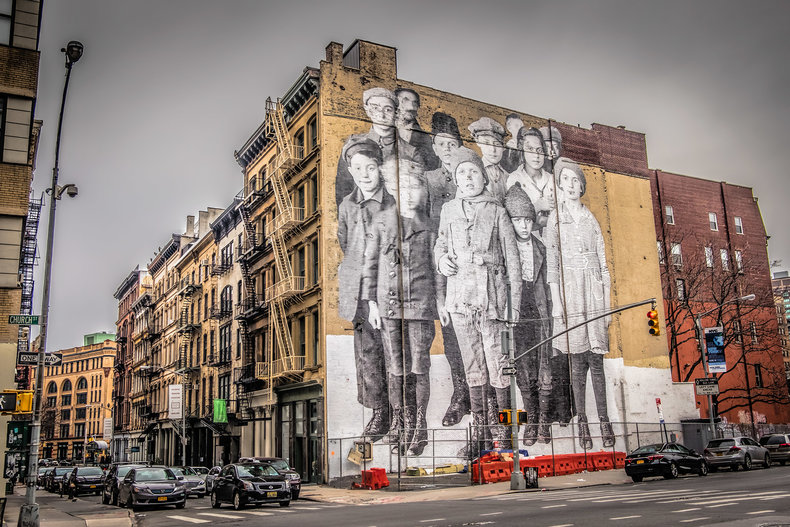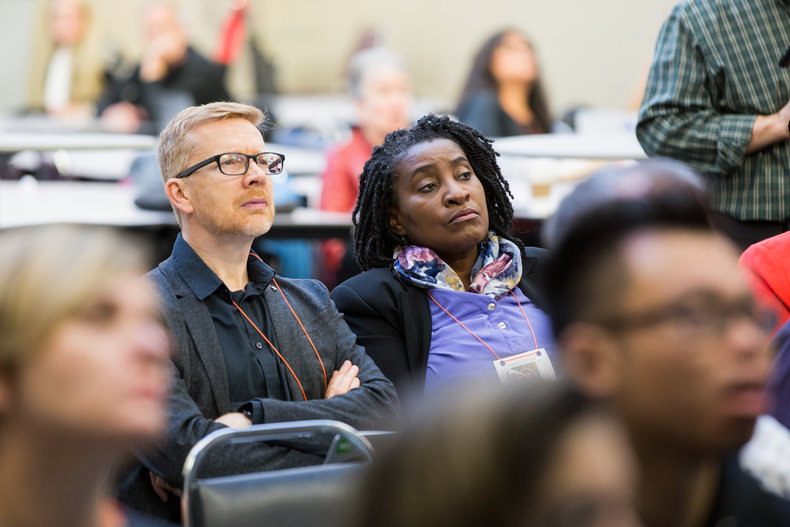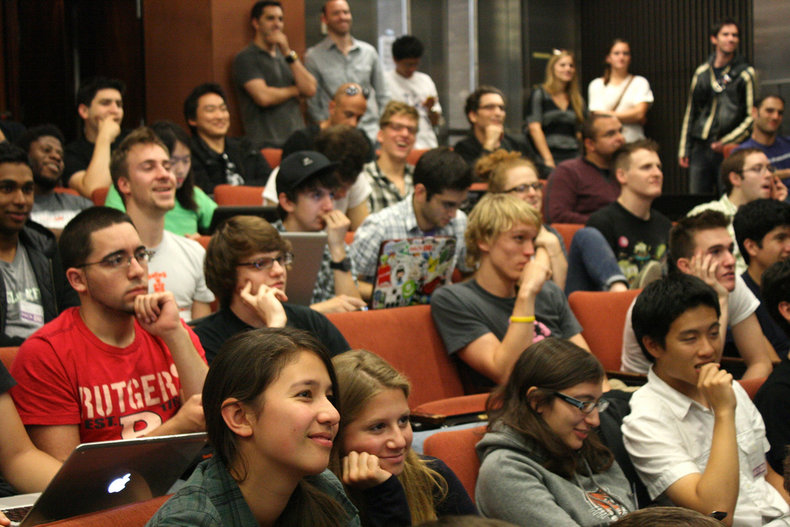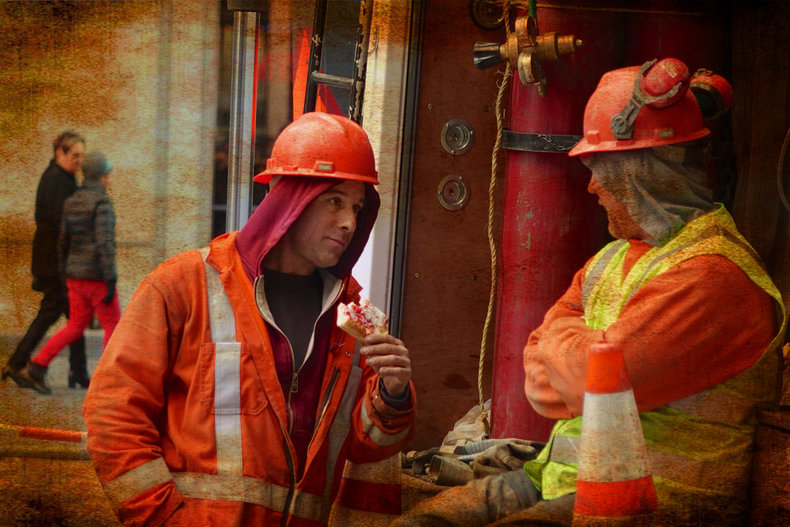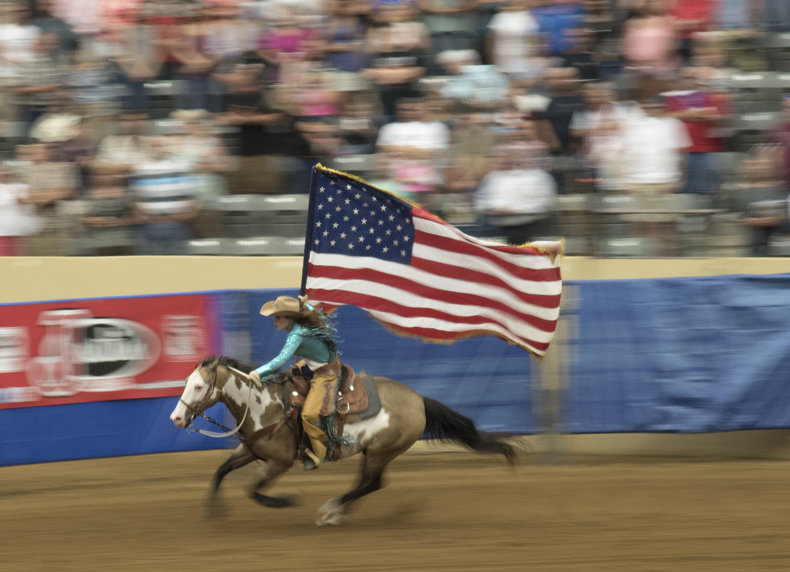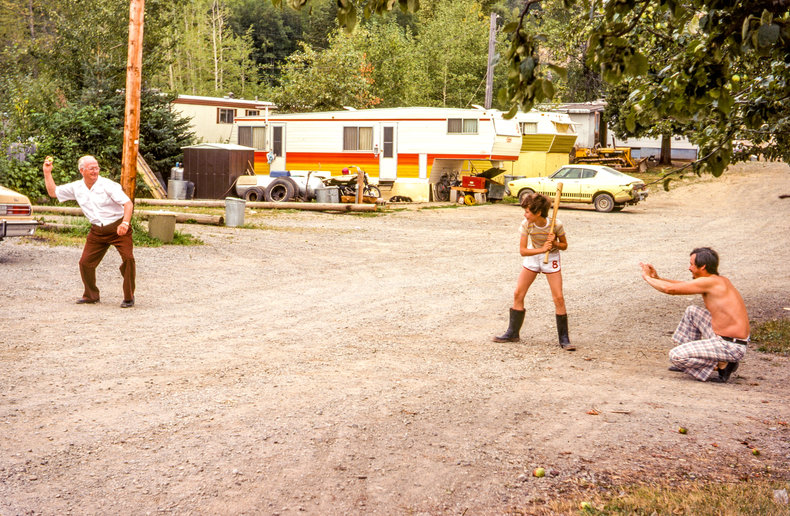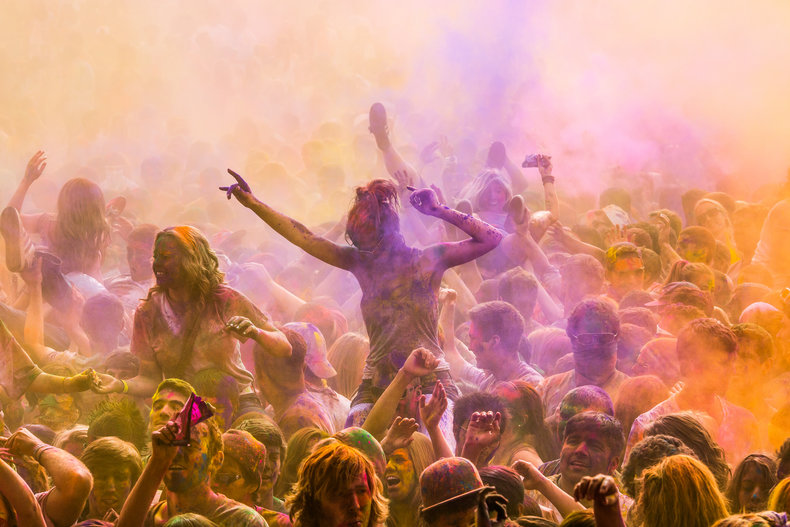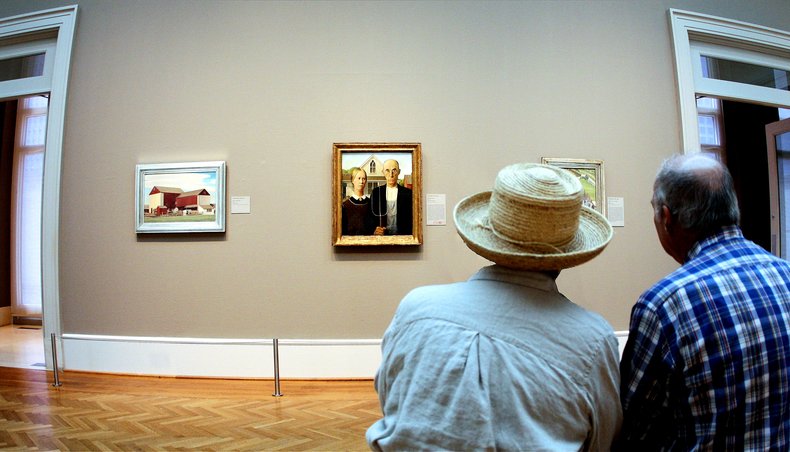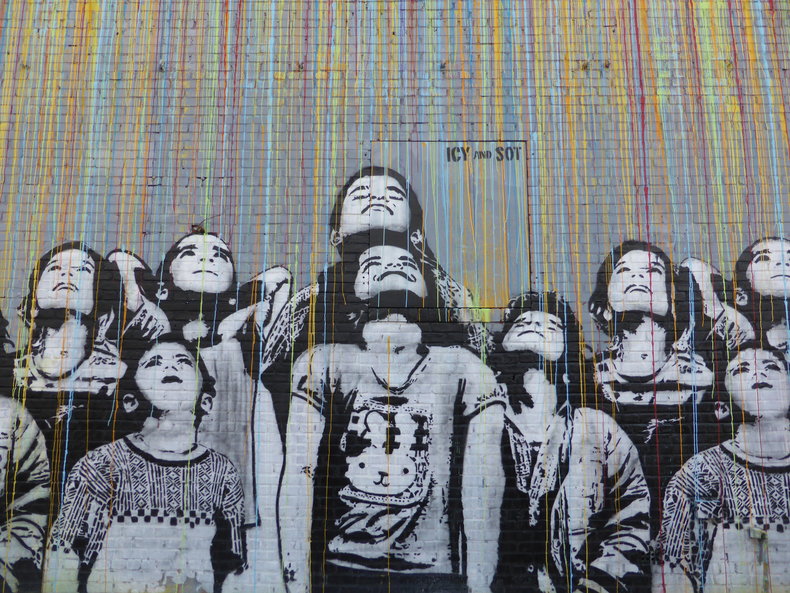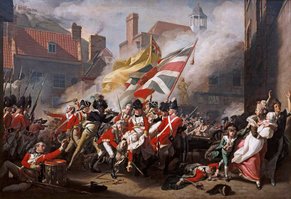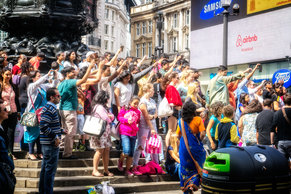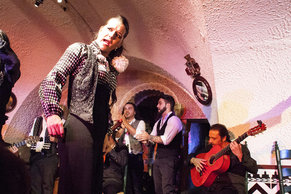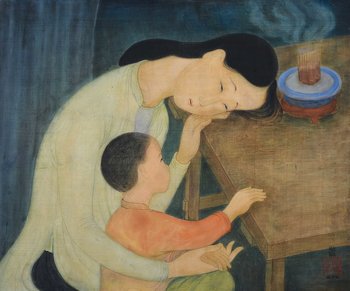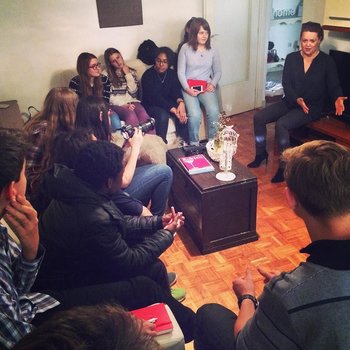|
| |
The American Dream is a national ethos of the United States captured by the Declaration of Independence as "all men are created equal" and "life, liberty, and the pursuit of happiness." This is often used to describe the character of America. The following are illustrative examples.
ImmigrationWith the exception of Native Americans, all Americans can trace their roots to immigration or slavery. The American Dream is largely based on the hopes and aspirations of those who traveled to America in search of a better life. Pursuit of HappinessWe hold these truths to be self-evident, that all men are created equal, that they are endowed by their Creator with certain unalienable Rights, that among these are Life, Liberty and the pursuit of Happiness.
~ United States Declaration of Independence, July 4, 1776
The Declaration of Independence is a brilliant statement of human rights and freedom that captures the spirit of the American Dream and American culture. The pursuit of happiness leaves it to each individual to decide the meaning and purpose of their life.
Equal OpportunityAmerica began with the statement "all men are created equal" in the Declaration of Independence in 1776. This certainly didn't reflect the realities of the time as slavery wasn't abolished until January 31, 1865. Nevertheless, the idea that you will be given a fair chance at opportunity if you work hard is a foundational element of the American Dream.MeritocracyThe American Dream is an ethos of meritocracy whereby you achieve the results in life that you deserve with your talent, effort and initiative. This runs strongly contrary to the forced sameness of communist systems whereby nobody is allowed to get ahead of everyone else.CapitalismThe history of America is decidedly capitalist whereby economic rights and freedoms are strongly valued. As such, the American dream is associated with the idea that an entrepreneurial spirit, effort and risk taking are rewarded.MaterialismMaterialism is the pursuit of power and wealth. The American Dream is often narrowly interpreted as the pursuit of these things. The American Dream is far more than materialism but this is certainly a common manifestation of it. Democracy of GoodsThe idea that mass production will allow everyone to have the best of everything. For example, a society where people use much the same smartphone technology regardless of socioeconomic status.Dream of Novelty Markets that are always producing things that are better or more fashionable such that consumption feels alive and vibrant.Dream of MobilitySocial mobility is the ability of families to improve their socioeconomic status such as a transition from the working class to bourgeoisie. This is an key component of the American Dream that greatly influences American politics and policy. For example, working class people who strongly believe in social mobility may support policies that benefit the upper class because they feel they will join this class eventually.American ExceptionalismAmerican exceptionalism is the belief that America is fundamentally different than other countries. For example, the belief that America is the only country that is "free" or that America is the only country that offers social mobility. This doesn't necessarily mesh with reality. For example, America ranked 27th in the 2020 Global Social Mobility Index as calculated by the World Economic Forum. This was behind most other wealthy countries. Historically, America did offer social mobility but this doesn't appear to be a current reality.Land of CompetitionThe American Dream is associated with the idea that competition is healthy and that it produces a high quality of life. Critics of the American dream also associate it with competition but view this as relentless and ruthless.MaximalismThe American Dream represents the human desire for growth. It is more a journey, intention or motivation than it is a destination. As such, there is little sense that there is an limit. This could be described as maximalism whereby more is always better.Home OwnershipThe American Dream manifests as a desire to be absurdly wealthy. However, it is also associated with regular life improvement goals such as the desire to own a home.ChildrenIn many cases, the American Dream is a dream for the next generation as families try to set their children up for success in a competitive but vibrant economy and society.CountercultureIn the 1960s, strong criticism of the American Dream and American culture emerged in reaction to the Vietnam War. This proposed new approaches to culture such as the prioritization of the human experience over pursuit of wealth and power. Counterculture movements change and are given different names in each generation but thrive to this day. For example, simple living is a very large social movement that challenges the assumption that the goal of life is to maximize power and wealth.Rosy RetrospectionRosy retrospection is a tendency to see the past as being better than it really was at the time. A common thread of commentary about the American Dream is that it is dead or no longer possible. This may reflect realities of limited social mobility in a mature economy where the upper class have things locked down. However, America is still a large and thriving economy and society such that this could also be construed as defeatist or entitled if you're just expecting the American Dream without working towards it.UniversalismUniversalism is the belief that some things are fundamentally true. This view of the American Dream tends to attach values to it such as a work ethic and a fairness towards those who put in the effort to contribute.RelativismRelativism is the belief that there is no universal truth, only subjective truth. This completely rejects universal values and views truths such as facts as mere propaganda. Relativism could be viewed as an extreme liberty whereby individuals are freed from what could objectively be described as reality. In other words, pursuit of happiness in a self-constructed reality that potentially rejects shared meaning.American PragmatismPragmatism is a philosophical tradition that has American roots. A pragmatist accepts something as true if it is true for all practical purposes. This would call for the subjective remaining personal and the universal being accepted only where it has some practical use. Pragmatists might view the American Dream as a potent motivational force that helps to explain realities such as the fact that America is the richest country on the planet in terms of total wealth.IllusionDreams are fundamentally illusionary. In fiction and film, the American Dream is often depicted as illusive, forever out of reach or fruitless. For example, the Great Gatsby is a great American novel and rags-to-riches story that centers around an ultra rich and charming character named Jay Gatsby. Gatsby is a dark and hopeless character who wants something that is forever out of his reach. This is symbolized by a green light across the bay from his mansion on Long Island's North Shore. Gatsby can see the light and almost feels as though he could reach out and touch it but it will forever allude him.Culture ChangeThe American Dream is based on open-ended principles such as pursuit of happiness. As with America and American culture, it is constantly changing with the times. For example, in a land of plenty where goods are democratized, future generations may strongly prioritize other elements of quality of life and the human experience over wealth accumulation.
American Culture
This is the complete list of articles we have written about american culture.
If you enjoyed this page, please consider bookmarking Simplicable.
An overview of American culture with examples.
An overview of cultural diversity with examples.
An overview of material culture with examples.
An overview of the importance of culture.
An overview of what shared culture means with examples.
An overview of low culture with examples.
An overview of cultural norms with examples.
An a-z list of the different types of restaurants with a few brief definitions.
An overview of cultural behavior with examples.
The definition of traditional culture with examples.
The definition of cultural heritage with examples.
The definition of rite of passage with examples.
An overview of social norms with examples.
An overview of human culture with examples.
An overview of cultural competence with examples and counterexamples.
TrendingThe most popular articles on Simplicable in the past day.
Recent posts or updates on Simplicable.
Site Map
© 2010-2023 Simplicable. All Rights Reserved. Reproduction of materials found on this site, in any form, without explicit permission is prohibited.
View credits & copyrights or citation information for this page.
|

